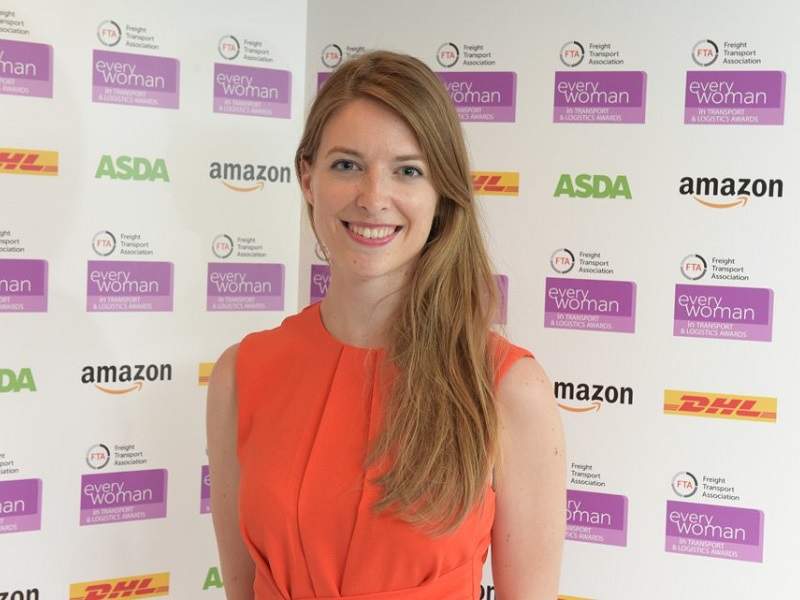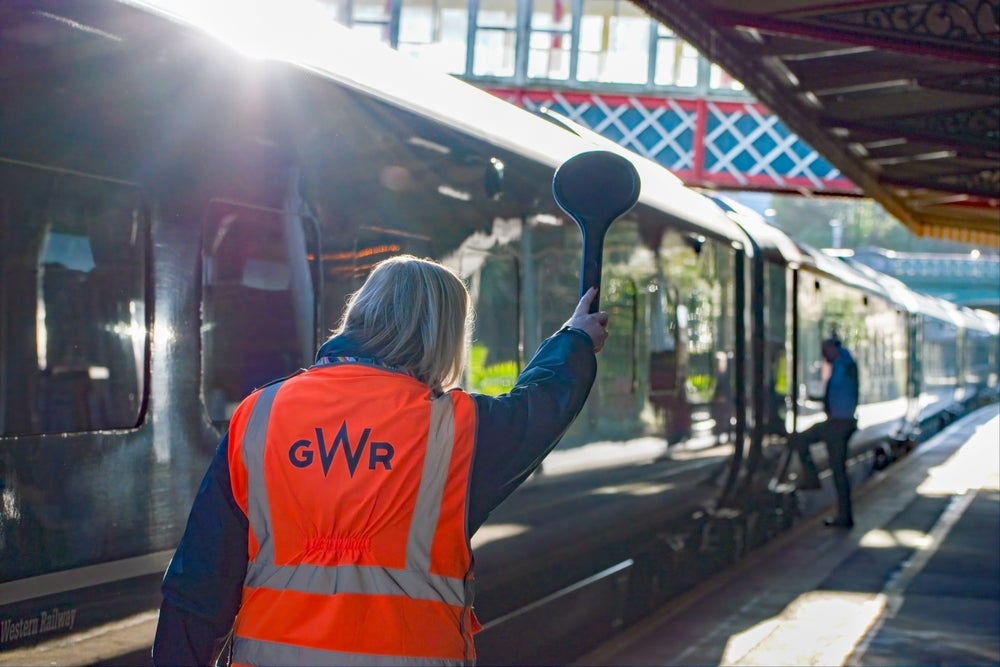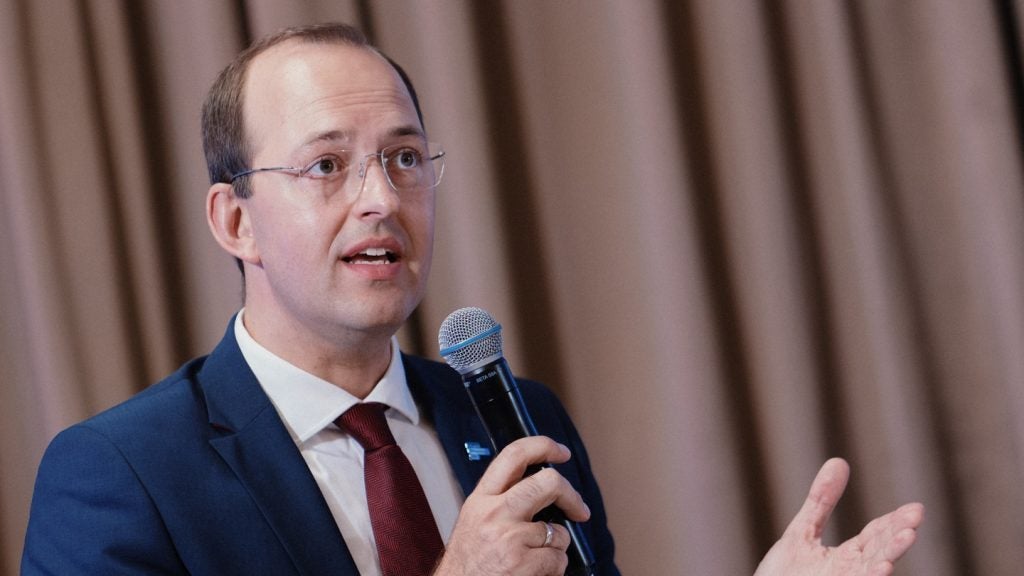
In March this year, gender pay gap data released by the Greater London Authority (GLA) revealed that male employees at Transport for London (TfL), the government body responsible for the transport system in the UK capital, are paid over a fifth more than female colleagues.
According to the GLA, such disparity in salary was not down to women being paid less for doing the same job, but rather due to the lack of women in senior roles.
The news prompted criticism across the industry, with Mayor of London Sadiq Khan urging TfL to address the issue immediately. However, while the next set of GLA data on TfL salary conditions will not be released until March 2019, Harriet Glen, principal transport planner at TfL, has already taken actions to reduce the gender pay gap.
During her career at TfL, Glen has launched a number of initiatives, including The Girls Network Charity – thanks to which 100 female staff members have mentored girls from disadvantaged backgrounds – and the Male Allies programme, which encouraged 300 men to take action towards a more gender-balanced workforce – with the ultimate aim to break down pay inequalities.
Glen’s efforts have not only contributed to improving TfL’s gender disparity, but have also earned her the Industry Champion Award at the 2018 FTA everywoman in Transport & Logistics. Adele Berti finds out more about her initiatives and future plans to improve inequality in the workplace.
Adele Berti: What inspired you to take strong action against pay inequalities in your company and what does winning the 2018 FTA everywoman in Transport & Logistics Award represent as a consequence of your efforts?
How well do you really know your competitors?
Access the most comprehensive Company Profiles on the market, powered by GlobalData. Save hours of research. Gain competitive edge.

Thank you!
Your download email will arrive shortly
Not ready to buy yet? Download a free sample
We are confident about the unique quality of our Company Profiles. However, we want you to make the most beneficial decision for your business, so we offer a free sample that you can download by submitting the below form
By GlobalDataHarriet Glen: Since becoming chair of TfL’s Women’s Network, I have been really motivated to ensure that the network is seen by the organisation as a ‘catalyst for change’ and a way to connect the executive leaders to frontline staff – and particularly drive forward progress with female colleagues who are in the minority at all levels. The gender pay gap is around 10% at TfL and I felt a duty – along with the Women’s Network Committee – to challenge the business to do more to address this gap. I successfully lobbied the business to conduct an equal pay audit and to create a gender pay gap action plan with clear accountabilities that will allow progress to be tracked.
Winning the award has been a real boost – particularly as my efforts have mainly been voluntary and grafting with colleagues behind the scenes – and it’s been great to inspire others to challenge the status quo and to drive positive change together too.
AB: You have launched a campaign to educate men about how to tackle the gender pay gap at TfL. What response did you receive, and to what extent are they contributing to closing the gap?
HG: I launched a ‘Male Allies’ campaign in association with the Women’s Network to encourage more men into the gender equality conversation. It makes logical sense that men get involved in this – alongside female colleagues – as they make up the majority of the organisation and the majority of senior decision making positions. We launched just over a year ago and we now have over 300 dedicated male allies from all parts of TfL who are championing diversity and inclusion, and challenging normal practices.
One of the biggest reasons why there is a gender pay gap is due to the lack of women within transport – and particularly within higher paid positions. Through raising awareness and giving the support network to these allies, we have seen some excellent success stories where senior male leaders are pushing back and making recruitment practices more inclusive for women – and as a result, the rates of women entering their parts of the business are improving dramatically. I strongly encourage this behaviour – and the campaign has allowed us to shine a spotlight on good practice to inspire others to do the same. Over time, with continued focus on building and retaining a strong female pipeline into the transport industry – I am absolutely confident that the gender pay gap will be eradicated.
AB: Are you satisfied with the results of your campaigns or should more be done eliminate gender disparities in your workplace?
HG: I am never entirely satisfied as there is still a lot of work to do in order to achieve equality in the workplace. These campaigns – and the work in general of our staff network groups – are absolutely a step in the right direction. The reasons why these campaigns are so effective is due it being driven by the workforce and championed by key leaders within the business. We need positive tension between the grassroots of our organisation and the senior leadership in order to make the workplace work better for women. The Male Allies campaign is a great start and I would like to see even more men signing up and taking part in another year ahead. I’d also like more operational staff to be engaged in this work – and being supported by the business to develop themselves in the process.
AB: To what extent has your initiative to mentor girls from disadvantaged backgrounds improved their employability skills?
HG: I launched a partnership with The Girls Network charity to allow women at TfL to coach and inspire the next generation of women. The mentors have provided a range of work experience opportunities, coaching with CVs and presentations and generally providing tips on confidence and resilience. I have personally gained so much out from mentoring over the years. It’s a really invaluable experience and it’s really rewarding to know that you’ve made a positive impact on someone. One of the girls I mentor has now just taken up an apprenticeship in America, and I have helped her overcome rejection, to focus on her goals and ambitions and to build her resilience in order to get to where she is now. I’d highly recommend mentoring others if you aren’t already! I plan to expand our mentoring partnership with The Girls Network and TfL over the next year to train more colleagues to mentor and make a difference.
AB: Are you planning to launch any new initiatives related to gender inequality at TfL or the transport industry in general?
HG: I am dedicated to drive this agenda forward and there are lots of exciting plans ahead to help address gender inequality. We recently launched diversity dashboards across TfL to allow senior leaders to be aware of the make-up of their teams and to spot any gaps in representation through a data-driven approach. They have been responded to really well by the wider business so far, and I look forward to seeing how they help make progress. I am also trying to lobby the ‘diversity and inclusion’ team at TfL to launch an internal mobility programme to encourage staff – and in particular women – to develop their careers and have the opportunity to gain an overview of different business areas.
As well as gender representation, I am keen to make sure that we address retention rates for women by making the workplace a more inclusive place for women. We are due to launch peer-to-peer mentoring circles, which will provide support and development and allow safe spaces for women to address women-only issues such as IVF treatment, menopause and wider issues like harassment and bereavement. We are going to continue to work with other major transport organisations such as Network Rail and the Department for Transport and our supply chain to learn best practice.
AB: What example has your work set for other transport operators and systems across the UK?
HG: Through continued efforts to raise the profile of women and diversity in transport, I hope that this has set a precedent for other transport operators to do more as well. My efforts have been entirely voluntary and I want to set an example to other organisations that they should encourage and allow staff to work with the business to drive positive change.
Actions speak louder than words and I aim to inspire others into action through showing them the success that we’ve seen so far at TfL. It’s amazing what a relatively small group of people can achieve, so I encourage everyone to start today and aim high! Transport is an incredible industry to work in and everyone in the industry should do their bit to make it more inclusive for women and more reflective of the areas that we serve.







